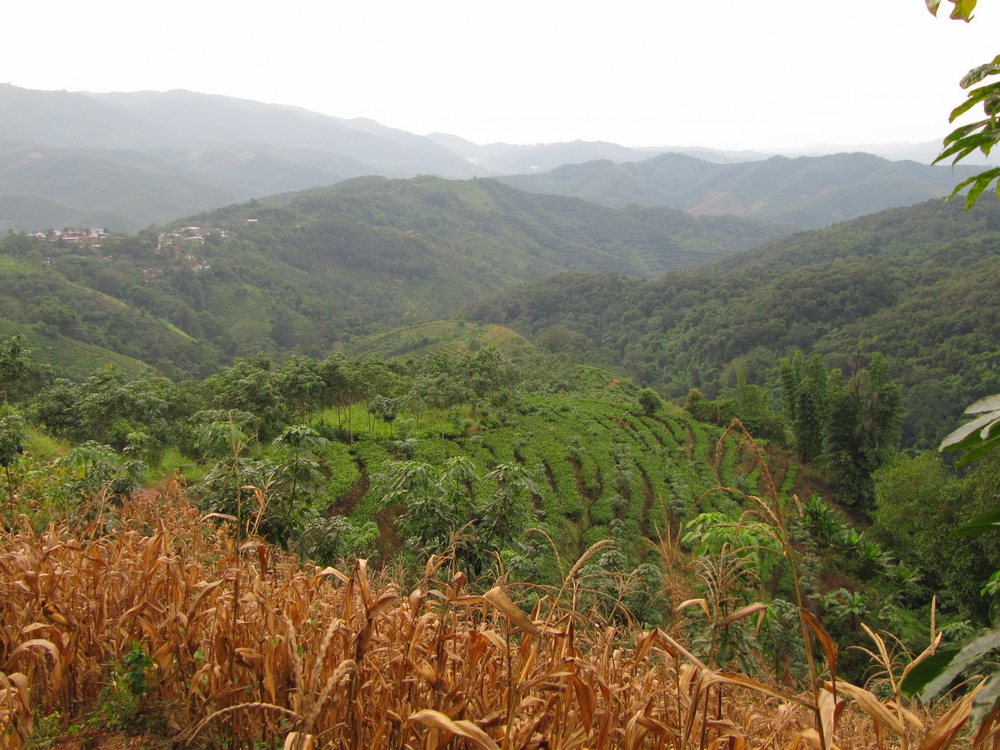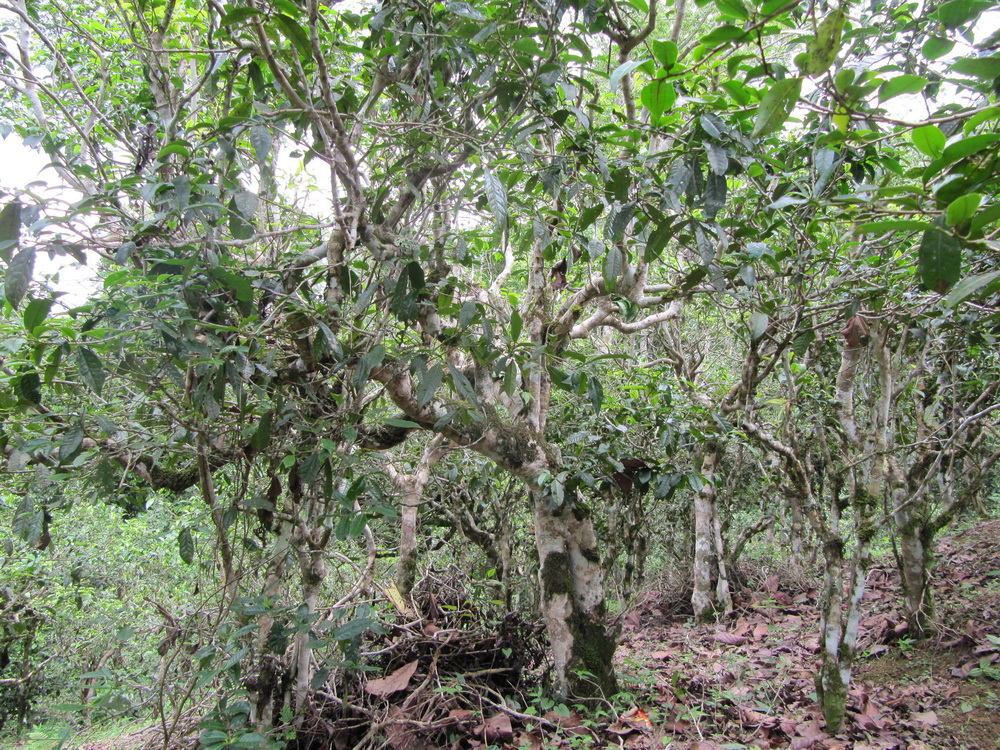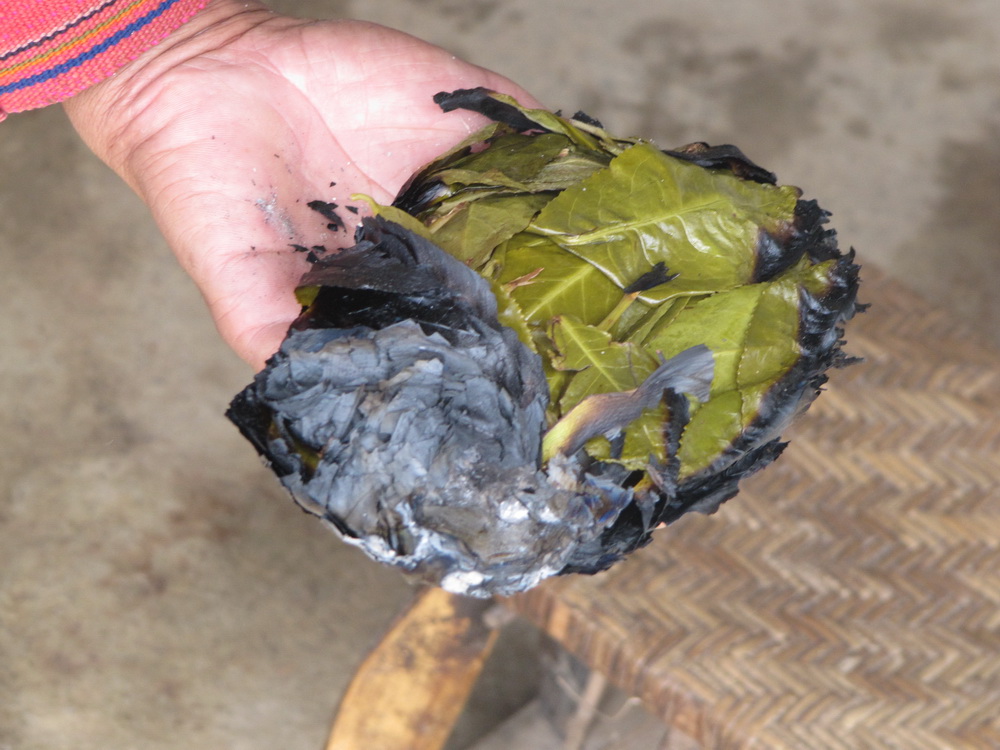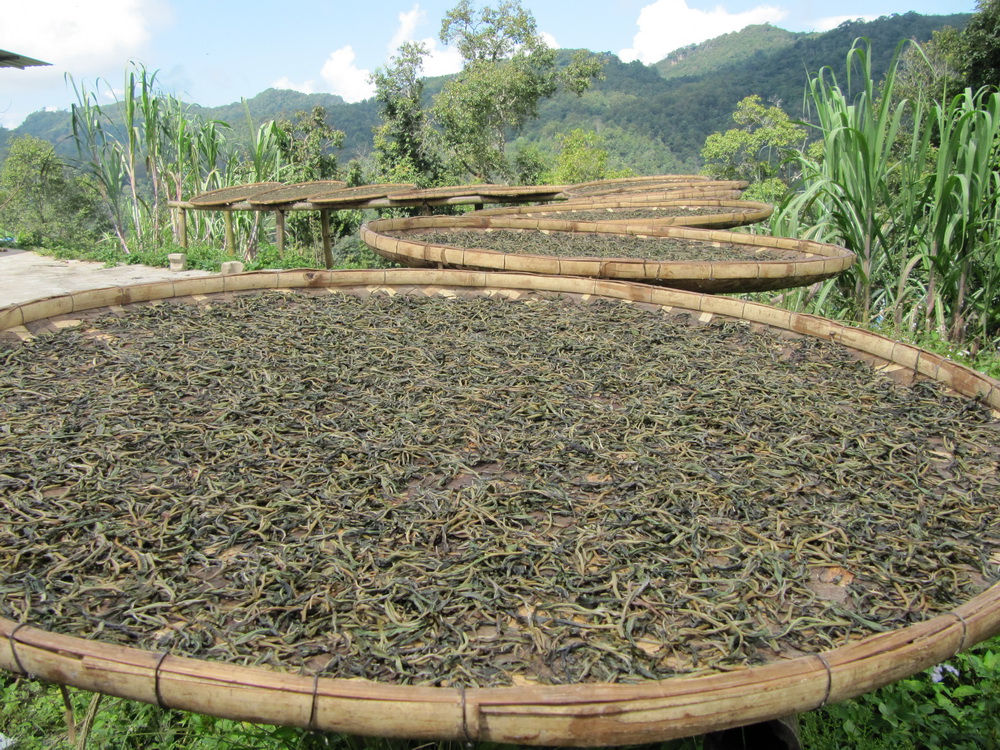There’s plenty of tea to be found on the road out from Jinghong to Jinuo Shan, but it’s not until you get some way past Jinuo Shan Town that you start to see anything that looks like you might want to try drinking it. And not until you get to Ya Nuo, some 10 km later, that you start to see some forest and ancient tea tree gardens.
Formerly known as Long Pa, Ya Nuo is a Jinuo village on the Menghun side of Jinuo Shan. It is one of two original ‘buluo‘ that the Jinuo inhabited. Originally, there were two extended families with fifty odd households living under one roof in a large bamboo structure with a grass roof. All the buildings in the village now are brick and concrete.
In the late 1970’s, when the Jinuo people were officially recognised by the National Government, the families in Ya Nuo were joined by families from the second village.
The Jinuo are a Tibeto-Burman group with a population of about 21,000. Their language shares some similarities with Burmese and belongs to the Yi branch of the Tibeto-Burman family. Jinuo people are animist and traditionally, hunter-gatherers and tea farmers. The Jinuo ‘creation myth’ is that they were born out of the sun drum – a large drum with pegs holding a taught skin over the end of the drum that radiate out resembling the sun’s rays. All Jinuo villages have a male and female drum which are of central importance in festivities as they embody sacred spirits.
Traditional Jinuo culture was egalitarian, with clan members hunting and farming together and sharing their spoils equally amongst all families. Tea was traded with ‘ma bang’ caravan traders in exchange for commodities that were needed, such as salt, cotton and ironware.
The most important festival is Temaoke or ‘Iron Forging Festival’ which falls early in the new year and is referred to as the ‘Jinuo New Year’. For Tamaoke, a cow is slaughtered and shared amongst the villagers such that each household gets an equal share of all parts of the animal.
Jinuo people tradionally make tea by wrapping it in a large leaf and roasting it in the embers of a fire. The leaves are then removed and brewed in a length of bamboo,or nowadays, in a large kettle. The resulting tea is strong and sweet.
Older Jinuo people – particularly women, chew betel nut ‘Burmese style’ using areca nuts and betel leaves and continue to wear traditional dress, but most younger people now only do so for special occasions.
At Ya Nuo, there are 2,800 mu of old tea tree gardens, owned by the original families of the village. In the 70’s, a co-operative, that is now defunct, was set up and tea bushes planted around the village. The later arrivals have no old tea tree gardens.
From the back of the village an area of protected forest extends all the way to Menglun, and it is mostly in this area that the ancient tea gardens are to be found, at altitudes ranging from 1300 to 1700 meters.




